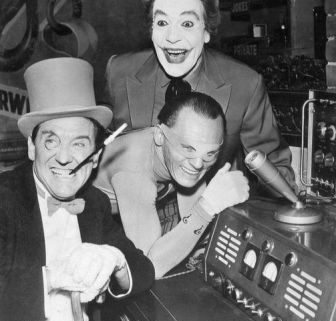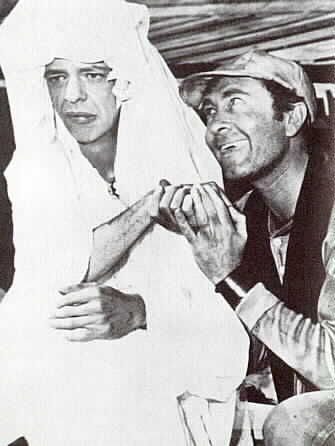Five Things Your Antagonist Should NOT Do
The antagonist of your story is, of course, someone who opposes the hero. It’s the antagonist’s job to prevent the protagonist from achieving her goal.
Antagonists provide stumbling blocks and hurdles for the lead character to overcome, and they create tension and drama.
Villains, on the other hand, are evil and will stop at nothing, including murder, to reach their goal. They’re often over the top characters who enjoy blowing things up, tearing things down, destroying human lives, and maybe even taking out the entire planet if they can devise a workable plan to do so.
So, here’s the deal. Villains are also antagonists (they definitely oppose the protagonists, but also want to kill, maim, mutilate, and disfigure…well, they’re just plain evil), but antagonists are not villains (antagonists are adversaries—roadblocks the hero must overcome or go around). Antagonists are not evil. Instead, they may simply have an opposing view, opposite of the protagonist’s ideas. Make sense?
A great example of an antagonist is Ernest T. Bass, the rock-throwing mountain man on the Andy Griffith Show. He was definitely a hurdle for Andy and Barney, especially Barney.
Anyway, here are five things an antagonist should not do.
1. The antagonist has stocked up on a variety of weapons and tons of ammunition, yet when he confronts the hero in the final showdown, he runs out of bullets first, and then tosses the empty weapon at the hero. NO! Bad guys who’ve risen to the rank of antagonist are basically equal to the hero in the intelligence department. They’ll think their plans through before acting out. Besides, cops carry backup weapons and extra bullets, why not have the antagonist do the same?
2. Villains who are bound and determined to destroy the world clearly haven’t thought this through. If the world goes up in smoke where will he live, the moon?
What will he do? And with whom will he do it? Everything will be gone! The earth would be a ghost town.
Of course, we know the world won’t end on page 367, but the villain doesn’t know he’s merely a character in a book. Therefore, the end result must be believable to the reader…and to your characters.
3. Finally, when all the smoke clears and last piece of buckshot has been plucked from the hero’s rear end, somewhere near page 289, we find the antagonist having the upper hand over the hero. Maybe he has the protagonist tied up, or something. And what do we see next…the antagonist spouting off a full confession to the hero—everything he’s done wrong over the course of his entire lifetime.
Then he slithers away, leaving the hero bound and gagged inside a burning building. How cliche’ is that? They don’t confess like this in real life. Normally, bad guys lie like tired dogs until the very end, when they feel they’ve exhausted all means of hiding the truth. But not while they’re winning the battle.
4. Number four is actually part of number three, but it’s such a wiener that I’ve given it a separate spot in the countdown. The bad guy has the hero in a position where he could easily finish him off, however, the thug chooses to talk for a while, or his heart softens and he decides he just can’t pull the trigger. Puhleeeze… The bad guy has hated the hero for 147 years. Why would he suddenly have a change of heart? There has to be a better way for these scenarios to play out. Where’s the creativity? Why write the same old, same old?
5. Your antagonist is a pretty clever guy. He’s devised a plan to end the world, found a way to stockpile plutonium, uranium, missiles, grenade launchers, and a couple of fighter jets, and is able to sneak in and out of the Pentagon and White House any old time he chooses, yet he picks an accomplice who’s as dumb as a box of rocks. I ask you, how believable is that?
Please, give your antagonist a healthy dose of smarts. They’ll appreciate it, and so will your readers.
I’ll say it again…it’s a writer’s duty to create believable make-believe.










I’ll say it again…it’s a writer’s duty to create believable make-believe.
Now to be fair, all of these are points that can be completely ignored.. but if you’re going to ignore them, make it fit the character.. and don’t ignore them all, even if it fits.. unless it’s meant to poke fun at the cliches (see: Dr. Evil).
1) Some villains just don’t like to get their hands dirty, so may not carry that many weapons on their person. Or their ego may be such that they don’t believe they will ever need more than 6 shots.
2) If the villain cares very little for their own life, the threat of destroying the world is certainly a viable one. Essentially they’re not trying to destroy the world, they’re holding the world for ransom.. if they get what they want, they won’t activate their Doomsday device. This plays well in to a character who has nothing left to lose, for example.
3) Ego. A highly egotistical villain may feel the need to ‘monologue’ to the hero once they believe them completely incapacitated. “This is what you can’t stop from happening, doesn’t it just suck to be you?!”
4) Once again the idea that some villains don’t actually want to get their hands dirty. They would rather let something else do the physical killing.. Or maybe they can’t stand the sight of blood. However, this should only be the case if they’ve been a controlling party the entire story and haven’t directly killed others in the story. For others, it’s possible they would believe that a quick death of being shot is “too good” for the hero.
5) If there is a dimwitted lackey, there needs to be a good solid reason for said dimwitted lackey.. Maybe they’re family? Maybe they’re REALLY GOOD at certain things. Look at Master-Blaster, Blaster made up for Master’s own shortcomings, and wasn’t intelligent enough to question being a slave.
The biggest thing is.. if you’re writing a story, and you really want to use a classic trope.. find a way to make it make sense in the story.
Must be a tough day in Bad Guy Land, Chief. I think you’re posting on the wrong blog.
Great stuff Terry.
Admittedly I’ll have to go back to antag school 101 to make sure none of these 5 are taking place.
Thanks again
Scott
Okay, you have given me things to think about. LOL My favorites are #2 and #5. Hubby is always telling me people are stupid and I see stupid criminals on the news all the time (favorite is the guy whose butt dials 9-1-1 on cell phone), however, I know that doesn’t work in a novel.
Cathy – Sure, those do occur, and as long as the delivery of the material is believable all will be well…for the reader. Not so much for the characters in the book.
I always strive to not have any of my characters play what I call “the idiot card”. Not my protagonist, not the police, and not the villain.
I’ve often seen in other books where the villain is a serial killer and suddenly plays the idiot card. They’ve been incredibly clever, successfully killing and getting away with it… then they do something dumb that gets them caught.
I’d rather have the protagonist outsmart the villain, then the villain outdumb himself. 🙂
Question on Number 2 though: What if the villain is being influenced by religious or cult beliefs? There are evil villains out there who don’t care what happens to them as long as they can kill those they believe are evil.
“I’m a little mean, but I make up for it by bein’ real healthy.”
But rocks seem to be everywhere. A dime a dozen. Congress, the senate…
As to #5 – Ya’ just can’t find good minions these days. 🙂